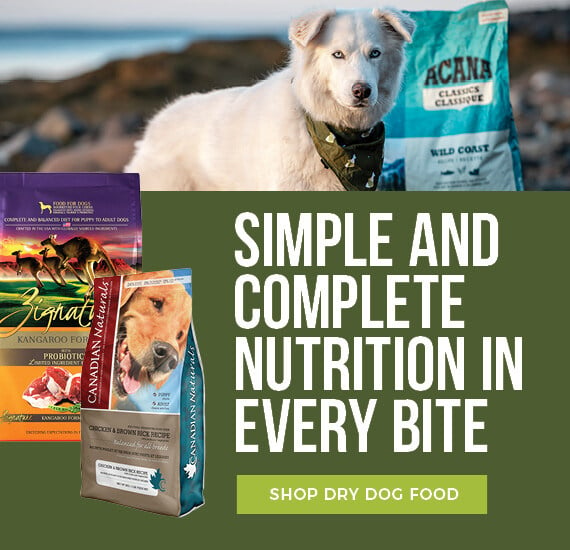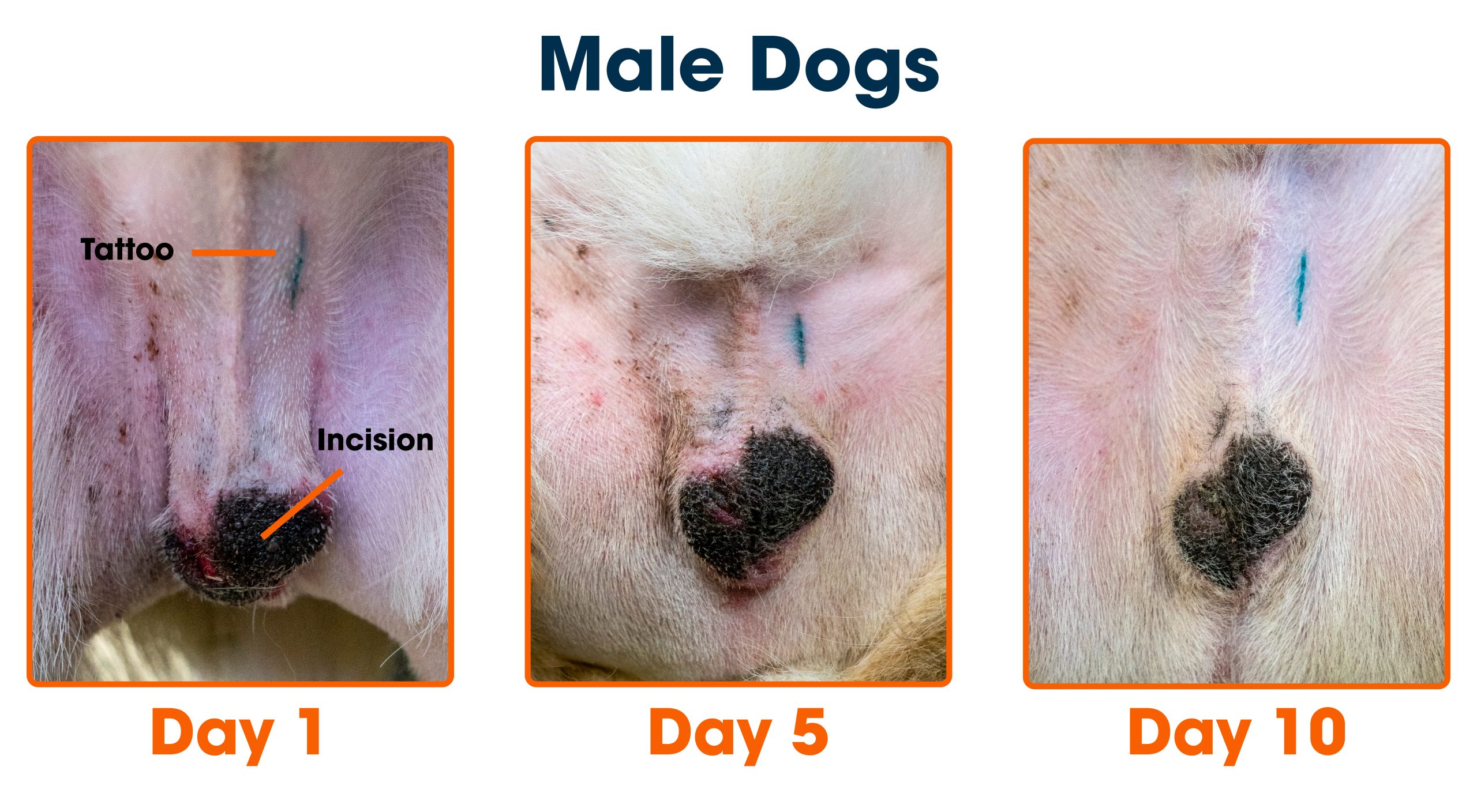When it comes to feeding your dog, you might wonder if the type of protein in their food really matters. After all, protein is essential for your dog’s health, but is one source better than another?
What if choosing the right protein could boost your dog’s energy, improve their coat, or even help with allergies? Understanding the impact of different proteins can make a big difference in your dog’s well-being. Keep reading to discover how the type of protein in dog food can affect your furry friend’s health and happiness.

Credit: www.petsmart.ca
Types Of Protein In Dog Food
Protein is a vital part of dog food. It helps dogs build strong muscles and stay healthy. Different types of protein offer various benefits. Knowing these types helps choose the best food for your dog’s needs.
Animal-based Proteins
Animal-based proteins come from meat, fish, and poultry. These proteins have all essential amino acids dogs need. Common sources include chicken, beef, lamb, and fish. Animal proteins are usually easy to digest and rich in nutrients. They support muscle growth and energy well.
Plant-based Proteins
Plant-based proteins come from beans, peas, lentils, and grains. They provide protein but may lack some essential amino acids. Combining different plant proteins can create a complete protein source. Plant proteins are often used in limited ingredient diets. They can be good for dogs with meat allergies or sensitivities.
Novel Proteins
Novel proteins are rare or less common protein sources. Examples include venison, duck, rabbit, or kangaroo. These proteins reduce the risk of allergies in sensitive dogs. Novel proteins help dogs with food intolerances or skin problems. They offer variety and can improve food acceptance.
Protein Quality And Digestibility
Protein quality and digestibility are crucial for your dog’s health. Not all proteins offer the same benefits. The body needs proteins that break down easily and supply all essential nutrients. Choosing the right protein in dog food supports muscle growth, energy, and overall vitality.
Amino Acid Profiles
Proteins consist of amino acids. Some amino acids are essential, meaning dogs must get them from food. High-quality proteins contain all essential amino acids in the right amounts. Animal proteins usually have a better amino acid profile than plant proteins. Dogs digest these amino acids more easily. This helps maintain strong muscles and good immune function.
Protein Absorption Rates
Digestibility shows how well a dog can absorb protein. Higher digestibility means more nutrients enter the bloodstream. Animal-based proteins often have higher absorption rates than plant-based ones. Processing methods also affect digestibility. Dry kibble may digest differently than wet food. Choosing proteins with good absorption supports your dog’s health and energy levels.
Impact On Dog Health
The type of protein in your dog’s food can significantly impact their health. While all proteins are important, different sources can affect various aspects of your dog’s well-being, from muscle growth to managing allergies. Understanding these impacts can help you make informed decisions about your dog’s diet.
Muscle Maintenance And Growth
Proteins are crucial for muscle maintenance and growth. High-quality animal proteins like chicken and beef are rich in essential amino acids, which help in building and repairing muscles. If your dog is active or aging, these proteins can support their muscle strength and vitality.
Consider your dog’s lifestyle and age when choosing protein sources. A young and energetic pup might require more protein than a senior dog who spends most of the day lounging.
Allergies And Sensitivities
Some dogs may develop allergies or sensitivities to certain protein sources. Common allergens include beef, chicken, and dairy. If your dog is scratching more than usual or has digestive issues, it might be time to explore alternative protein sources like fish or lamb.
Finding the right protein can alleviate discomfort and improve your dog’s quality of life. A friend once switched her dog’s food to a fish-based diet, and the change was remarkable—no more itchy skin!
Weight Management
Protein plays a vital role in weight management. Lean proteins can help maintain an ideal weight by promoting satiety and preserving muscle mass. Dogs that are overweight might benefit from foods that are high in protein but low in fat.
Check the labels for protein content and consider portion sizes. Could your dog’s weight be influenced by the protein type in their food?

Credit: blog.homesalive.ca
Choosing The Right Protein
Choosing the right protein in dog food is crucial for your pet’s health. Proteins support muscle growth, energy, and overall wellbeing. Different dogs have unique needs based on several factors. Knowing how these factors affect protein choice helps you pick the best option.
Age And Life Stage Considerations
Puppies need more protein to grow strong and healthy. Adult dogs require a balanced protein amount to maintain their muscles. Senior dogs benefit from easily digestible proteins to support aging bodies. Protein type should match these life stages for optimal health.
Breed And Activity Level
Active breeds burn more energy and need higher protein levels. Large breeds often require proteins that support joint health. Small breeds may do well with moderate protein sources. Protein quality and source impact energy and muscle maintenance.
Special Dietary Needs
Some dogs have allergies or food sensitivities. Limited ingredient diets with single protein sources can help. Dogs with kidney issues may need lower protein amounts. Consult your vet to choose proteins suited to special health needs.
Common Myths About Protein In Dog Food
Protein plays a vital role in a dog’s diet. Many myths confuse pet owners about what type of protein is best. These myths can lead to poor choices and misunderstandings. Let’s clear up some common false ideas about protein in dog food.
More Protein Means Better Nutrition
Many think dogs need very high protein for good health. Too much protein can strain kidneys and cause other problems. Dogs require balanced nutrition, not just extra protein. Quality matters more than quantity. Proper protein supports muscles, skin, and energy without overload.
Plant Proteins Are Inferior
Some believe plant proteins can’t provide enough nutrients. Plants like peas, lentils, and beans contain good protein sources. They offer essential amino acids when combined properly. Dogs can digest plant proteins well if the food is balanced. Animal proteins are not the only option for quality nutrition.
All Dogs Need The Same Protein Type
Every dog has unique needs based on age, breed, and health. Puppies may need more protein for growth. Older dogs might require less protein to avoid kidney stress. Some dogs have allergies to certain proteins. Variety helps prevent sensitivities and keeps nutrition balanced.
Tips For Reading Dog Food Labels
Reading dog food labels can feel overwhelming, but it’s a skill that helps you choose the best nutrition for your furry friend. Every label tells a story about what’s inside the bag or can, especially when it comes to protein. Knowing what to look for ensures you’re giving your dog high-quality fuel for their energy and health.
Identifying Protein Sources
Start by checking the ingredient list. Ingredients are listed by weight, so the first few ingredients are the most important. Look for named proteins like “chicken,” “beef,” or “salmon” instead of vague terms like “meat meal” or “animal by-products.”
Protein from whole meats usually provides better nutrition and digestibility. But if you see terms like “corn gluten meal” or “soy protein,” these are plant-based proteins that might not offer the same amino acid profile dogs need.
Understanding Guaranteed Analysis
The guaranteed analysis section shows the minimum and maximum nutrient levels. Focus on the crude protein percentage to understand how much protein is in the food. Keep in mind, a higher number doesn’t always mean better quality—it’s about the source and digestibility.
Fat content is also important since it provides energy and helps absorb vitamins. Compare protein and fat percentages with your dog’s specific needs. For example, active dogs or puppies often need more protein and fat than senior dogs.
Recognizing Quality Indicators
Look for certifications and seals like AAFCO approval, which means the food meets basic nutrient requirements. Some labels also mention “human-grade” or “organic,” indicating higher quality standards.
Be cautious of marketing buzzwords like “premium” or “natural” without clear definitions. Check if the label lists preservatives or fillers—fewer additives usually mean better quality. Have you ever noticed how your dog reacts to a certain brand? Their energy and coat shine often reflect the food’s quality better than any label claim.

Credit: www.redbarn.com
Frequently Asked Questions
What Types Of Protein Are Best In Dog Food?
Animal-based proteins like chicken, beef, and fish are best. They provide essential amino acids dogs need for health and growth. Plant proteins can supplement but lack some nutrients found in meat.
Does Protein Type Affect My Dog’s Digestion?
Yes, animal proteins are generally easier to digest for dogs. Some dogs may have allergies or sensitivities to certain proteins, impacting digestion. Choosing high-quality protein helps promote better nutrient absorption and gut health.
Can Plant-based Proteins Replace Animal Proteins In Dog Food?
Plant proteins can complement but not fully replace animal proteins. Dogs require complete amino acids mainly found in meat. A balanced diet combining both sources ensures optimal nutrition.
How Does Protein Type Influence My Dog’s Energy Levels?
High-quality animal proteins supply essential amino acids that support muscle repair and energy. Poor protein sources may lead to fatigue and weakness. Proper protein choice helps maintain active and healthy dogs.
Conclusion
Choosing the right protein type in dog food affects your pet’s health. Different proteins offer various nutrients and benefits. Some dogs may digest certain proteins better than others. Knowing your dog’s needs helps pick the best option. Quality matters more than the protein source alone.
A balanced diet supports strong muscles and energy. Always watch how your dog reacts to new foods. Good protein keeps dogs happy and active every day.







